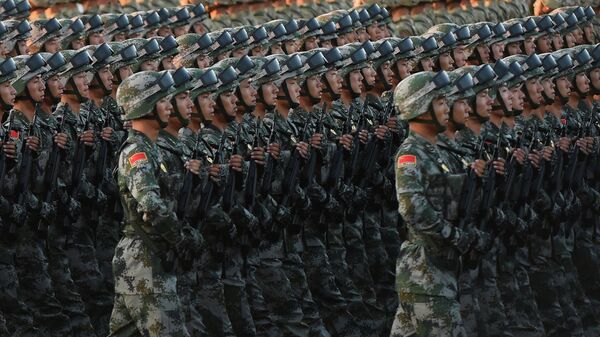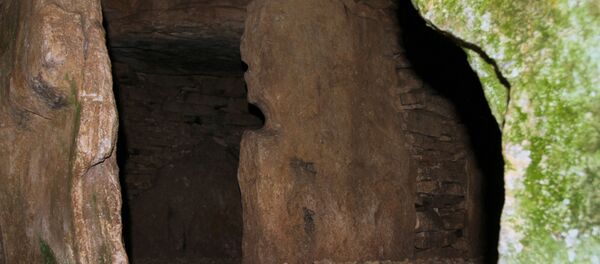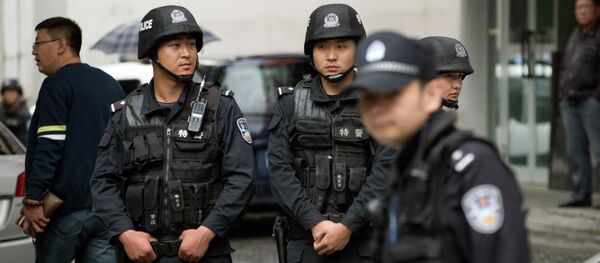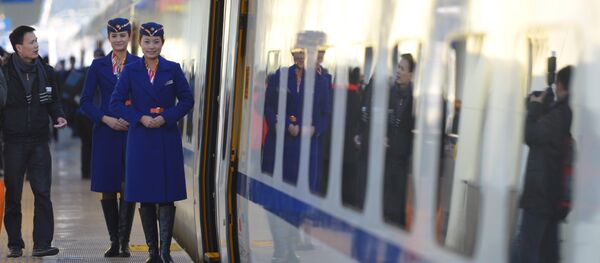In a mass anti-terror rally in Xinjiang's capital, Urumqi, hundreds of armed Chinese troops and police accompanied by armored vehicles marched through the streets. Ranked in front of a government building, they shouted pledges to fight terrorism.
Xinjiang deputy party secretary Zhu Hailun called the rally a sign of "real action" to ramp up the fight against terror, and said extremists would be "smashed and destroyed," the South China Morning Post reports.
"With guns by our bodies, knives unsheathed, fists out and hands extended, we must use thunderous power to strike hard against terrorist activities," Zhu said.
Before the rally in the capital, there had been displays in Kashgar and Hotan, in the south of the region. In Hotan, thousands of armed police and paramilitary officers marched to "show strength and intimidate," according to Reuters. The state-run Global Times called it an "oath-taking" rally, as soldiers pledged to fight terrorism and tighten security.
Hundreds have been killed in clashes between between the Muslim Uygur people of Xinjiang, who consider themselves native to the region, and the Han Chinese majority in the past few years. Language barriers (Uygurs speak a Turkic language) and curbs on religious and cultural activities important to the Muslim minority only aggravate tensions.
Five were killed in December when attackers rammed a vehicle with an explosive into a government building, and police killed what authorities call three armed terror suspects who had detonated an explosive last month.
Earlier this week, five were killed in a knife attack in Hotan prefecture, Pishan County, with police shooting the three attackers, the China Daily reported. Authorities are calling the incident a terror attack, though they have not identified the perpetrators or victims.
Pishan County has been referred to as a "hotbed of terrorism" since four people from the county took part in a suicide bombing in Urumqi in May 2014 that killed 39, according to the South China Morning Post.
China denies that its Uygur population faces discrimination and blames Islamist separatists for the violence. However, over the last two years, local governments have made regional officials promise not to fast for Ramadan and have forced Uygur village shops to sell alcohol and cigarettes despite religious objections. In November, the government ordered all residents of Xinjiang to turn in their passports for "inspection," on pain of being forbidden to travel in the future.
On Friday, Chinese President Xi Jinping called for efforts to improve "national security" across the country at a Beijing national security seminar.





